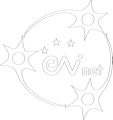 Network of European Neuroscience Institutes (ENI-NET)
Network of European Neuroscience Institutes (ENI-NET)
Neurosciences are one of the fastest growing areas of research today. The ultimate goal to understand the brain function is a long-term investment and requires the concerted efforts and close collaborations of all disciplines in neurosciences. So far, tremendous progress has been achieved in unravelling the mechanisms underlying memory formation and cognition.
Despite all the progress, most of the neurological and neurodegenerative diseases are still far from being treatable. Enormous efforts of basic and applied research will be necessary to further understand the disease-causing mechanisms in the future. Therefore, we particularly rely on young researchers to continue this process. As the task to understand the brain function and dysfunction is extremely complex, a strong interaction between the different disciplines in neuroscience is required.
One of the major tasks is to provide a platform to increase interactions and to actively support collaborations among different neuroscientists. The basis for such interactions, however, are common standards. In contrast to North America, it has for historical reasons been difficult to obtain such standards in Europe due to the obvious differences between the national research and funding systems. This made it particularly difficult for young independent researchers to establish themselves early in their career.
The European Neuroscience Network (ENI-NET) was founded in 2005 to support young independent neuroscientists within Europe and to increase their mobility and interactions.
The ENI institutes supply laboratory space, infrastructure, a nurturing environment, and other support, which enables young investigators to build small research teams and to perform independent work. The laboratory space, which preferably is a dedicated floor or whole building, are designated European Neuroscience Institute (ENI) at the given location. Together these institutes (ENIs) form the 'Network of European Neuroscience Institutes' (ENI-NET).
Each ENI has a local coordinator, the team lead, which functions a mentor for the ENINET Young Independent Group Leaders. The ENI-NET group leaders have guaranteed by their hosting institutions a high level of independence. This independence provides the necessary training in administrative and organizational matters that the each group leader needs for their future career.
The ENI-NET Young Investigators are selected based on their scientific track record and excellence. They are approved by the executive committee and elected for a period of 5 years, with the possibility of 2 years of extension. At the time of their appointment, Young Investigators should not have spent more than 9 years in science after receiving their PhDs. Extensions may be allowed in case of justified career breaks and have to be discussed individually with the ENI-NET management.
The Young Investigators have access to all of the ENI-NET resources and receive money to participate, personally and with members of their labs, in the network's meetings, workshops and conferences. These interactions between groups are aimed at increasing the impact of the research of individual teams, at promoting a stronger integration of research between participating institutions, at mobilising major resources for neuroscience and at significantly structuring the research field in the European Research Area.
Apart from the selection of ENI Young Investigators, the executive and advisory committees also help to organise and coordinate future joint fund applications of ENI-NET members.
Members of the executive committee are Stefan Eimer (Freiburg), David DiGregorio (Paris), Rafael Fernández-Chacón (Seville), Ola Hermanson (Stockholm), and Nektarios Tavernarakis (Greece). The advisory board consists of Erwin Neher (Göttingen), Walter Stühmer (Göttingen), Peter Brophy (Edinburgh), Jeremy Henley (Bristol), Juan Lerma (Alicante), and Christophe Mulle (Bordeaux).
A general assembly takes place during the ENI-NET annual meeting, where representatives of each ENI institute plan and decide about future network activities and common issues.